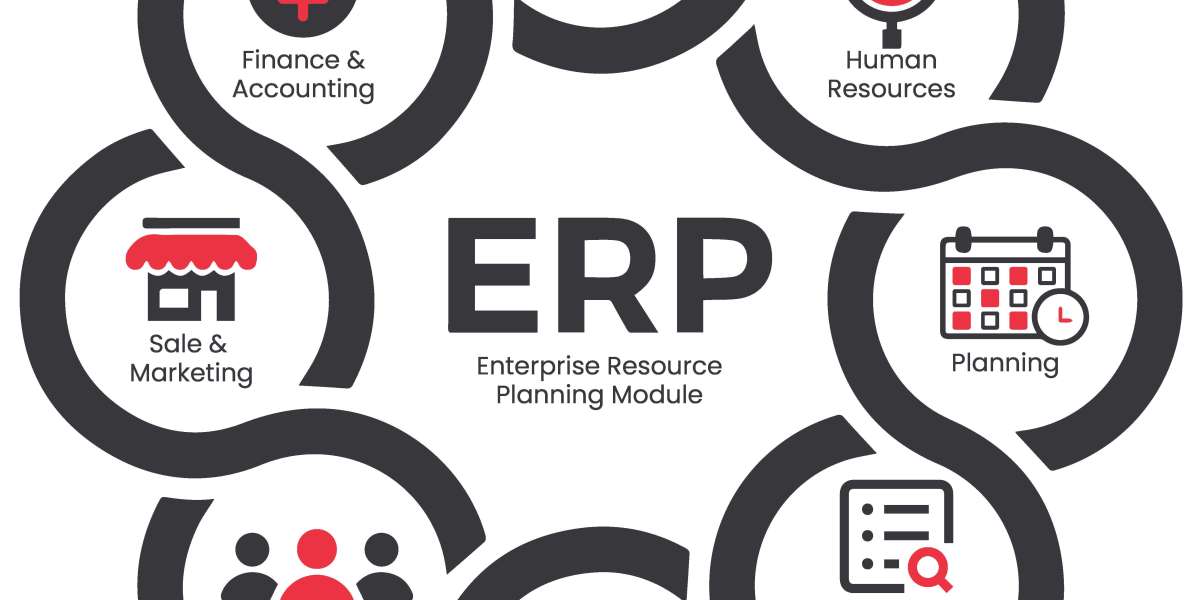Enterprise Resource Planning (ERP) systems are essential tools for modern businesses, providing a unified platform to manage various business processes such as finance, human resources, supply chain, and customer relationships. With numerous ERP solutions available, choosing the right one for your business can be challenging. In this guide, we will explore the top ERP systems for businesses in 2024, highlighting their features, benefits, and why they stand out in the market.
1. Microsoft Dynamics 365 Business Central
Dynamics 365 Business Central is a comprehensive ERP solution designed for small to medium-sized businesses. It integrates seamlessly with other Microsoft products, providing a unified business management platform.
Key Features:
- Financial management, CRM, supply chain management, and project management
- Integration with Microsoft Office 365, Azure, and Power BI
- Real-time data analytics and reporting
- Cloud, on-premises, and hybrid deployment options
Benefits:
- Improved decision-making with integrated data
- Enhanced productivity through familiar Microsoft tools
- Scalability to grow with your business
Why Choose Microsoft Dynamics 365 Business Central: Dynamics 365 Business Central is perfect for SMBs looking for a flexible, scalable ERP solution that integrates well with existing Microsoft infrastructure.
2. Microsoft Dynamics 365 Finance Operations
Dynamics 365 Finance Operations (FO) is an ERP solution tailored for large enterprises. It provides comprehensive functionalities across finance, supply chain, manufacturing, and retail.
Key Features:
- Advanced financial management, budgeting, and forecasting
- Supply chain and inventory management
- Manufacturing and production planning
- AI-driven insights and automation
Benefits:
- Enhanced financial and operational efficiency
- Real-time visibility into business performance
- Scalability and flexibility for large organizations
Why Choose Microsoft Dynamics 365 Finance Operations: Dynamics 365 FO is ideal for large enterprises seeking a powerful, scalable ERP solution with advanced financial and operational capabilities.
3. SAP S/4HANA
SAP S/4HANA is a leading ERP solution designed for large enterprises. It utilizes the SAP HANA in-memory database, offering real-time analytics and data processing capabilities.
Key Features:
- Real-time data processing and analytics
- Comprehensive functionality across various business domains
- Industry-specific solutions for sectors like manufacturing, retail, and healthcare
- Cloud, on-premises, and hybrid deployment options
Benefits:
- Improved decision-making with real-time insights
- Enhanced performance and scalability
- Tailored solutions for specific industries
Why Choose SAP S/4HANA: SAP S/4HANA is ideal for large organizations seeking a robust, scalable ERP solution with advanced analytics and industry-specific capabilities.
4. Oracle ERP Cloud
Oracle ERP Cloud is a comprehensive cloud-based ERP solution designed for large enterprises. It offers a wide range of applications to manage various business processes.
Key Features:
- Advanced financial management, procurement, and project management
- AI and machine learning capabilities for predictive insights
- Real-time reporting and analytics
- Robust security and compliance features
Benefits:
- Streamlined operations with automated processes
- Improved financial accuracy and efficiency
- Scalability and flexibility of cloud deployment
Why Choose Oracle ERP Cloud: Oracle ERP Cloud is ideal for large organizations looking for a powerful, scalable ERP solution with advanced financial management and AI capabilities.
5. NetSuite ERP
NetSuite ERP, part of Oracle’s suite, is a cloud-based ERP solution designed for small to medium-sized businesses. It offers a unified platform for managing various business operations.
Key Features:
- Financial management, CRM, e-commerce, and inventory management
- Real-time dashboards and reporting
- Multi-currency, multi-language, and multi-subsidiary management
- Cloud-based deployment
Benefits:
- Streamlined business processes with a unified platform
- Real-time visibility into business performance
- Scalable solution for growing businesses
Why Choose NetSuite ERP: NetSuite ERP is perfect for SMBs looking for a comprehensive, cloud-based ERP solution that can grow with their business.
6. Infor CloudSuite
Infor CloudSuite is a cloud-based ERP solution designed for various industries, including manufacturing, healthcare, and distribution. It offers industry-specific functionalities and best practices.
Key Features:
- Industry-specific solutions with built-in best practices
- Advanced analytics and business intelligence tools
- Modern user interface with social collaboration features
- Cloud-based deployment
Benefits:
- Tailored solutions for specific industries
- Improved decision-making with advanced analytics
- Scalability and flexibility of cloud deployment
Why Choose Infor CloudSuite: Infor CloudSuite is ideal for businesses seeking industry-specific ERP solutions with advanced analytics and cloud capabilities.
7. Acumatica
Acumatica is a cloud-based ERP solution known for its flexibility and open architecture, making it suitable for a wide range of industries.
Key Features:
- Flexible deployment options (cloud, on-premises, hybrid)
- Open architecture for easy integration with third-party applications
- Mobile access and user-friendly interface
- Comprehensive suite covering finance, CRM, and project management
Benefits:
- Customizable to fit specific business needs
- Scalable solution that grows with your business
- Anywhere, anytime access through mobile devices
Why Choose Acumatica: Acumatica is ideal for businesses seeking a flexible and scalable ERP solution with a strong emphasis on customization and mobile access.
8. Epicor ERP
Epicor ERP is designed to meet the needs of manufacturing, distribution, retail, and services industries. It offers both cloud and on-premises deployment options.
Key Features:
- Industry-specific solutions with built-in best practices
- Integrated functionality across finance, manufacturing, supply chain, and more
- Real-time analytics and business intelligence tools
- Support for multi-country operations with localizations
Benefits:
- Deep industry knowledge and specialized solutions
- Flexible deployment options
- Comprehensive functionality to manage various business processes
Why Choose Epicor ERP: Epicor ERP is perfect for businesses in manufacturing, distribution, and retail industries looking for a robust, industry-specific ERP solution.
9. Sage Intacct
Sage Intacct is a cloud-based financial management solution designed for small to medium-sized businesses. It offers advanced accounting capabilities and real-time financial insights.
Key Features:
- Core financials, accounts payable, and accounts receivable
- Real-time reporting and dashboards
- Multi-entity and multi-currency management
- Integration with other business applications
Benefits:
- Improved financial accuracy and efficiency
- Real-time visibility into financial performance
- Scalable solution for growing businesses
Why Choose Sage Intacct: Sage Intacct is ideal for SMBs seeking a cloud-based financial management solution with advanced accounting capabilities and real-time insights.
10. Syspro
Syspro is an ERP solution tailored for manufacturing and distribution industries. It offers both cloud and on-premises deployment options.
Key Features:
- Comprehensive functionality for manufacturing and distribution
- Real-time data visibility and analytics
- Customizable to fit specific business processes
- Integration with other business applications
Benefits:
- Enhanced operational efficiency and productivity
- Real-time insights for better decision-making
- Flexible deployment options
Why Choose Syspro: Syspro is perfect for manufacturing and distribution businesses seeking a robust ERP solution with industry-specific functionalities and flexible deployment options.
11. Odoo
Odoo is an open-source ERP solution offering a wide range of business applications. It is suitable for businesses of all sizes and industries.
Key Features:
- Modular design with applications for CRM, sales, inventory, and more
- Open-source architecture for easy customization
- User-friendly interface and mobile access
- Cloud and on-premises deployment options
Benefits:
- Highly customizable to fit specific business needs
- Scalable solution that grows with your business
- Cost-effective with a modular pricing model
Why Choose Odoo: Odoo is ideal for businesses seeking a flexible and customizable ERP solution with a wide range of applications and deployment options.
Conclusion
Choosing the right ERP solution is crucial for optimizing business processes, improving efficiency, and driving growth. The top ERP systems for businesses in 2024—SAP S/4HANA, Oracle ERP Cloud, NetSuite ERP, Infor CloudSuite, Acumatica, Epicor ERP, Sage Intacct, Syspro, Odoo, Microsoft Dynamics 365 Business Central, and Microsoft Dynamics 365 Finance Operations—offer a variety of features and benefits to meet the diverse needs of businesses across different industries and sizes.
Evaluate your specific requirements, budget, and growth plans to determine the best ERP solution for your business. By selecting the right ERP system, you can streamline operations, enhance productivity, and position your business for long-term success.
Choose Your ERP System
If you're ready to explore ERP solutions and find the best fit for your business, contact our experts at Dynamics Square for a personalized consultation. We'll help you navigate the options and ensure you get the most out of your investment.


